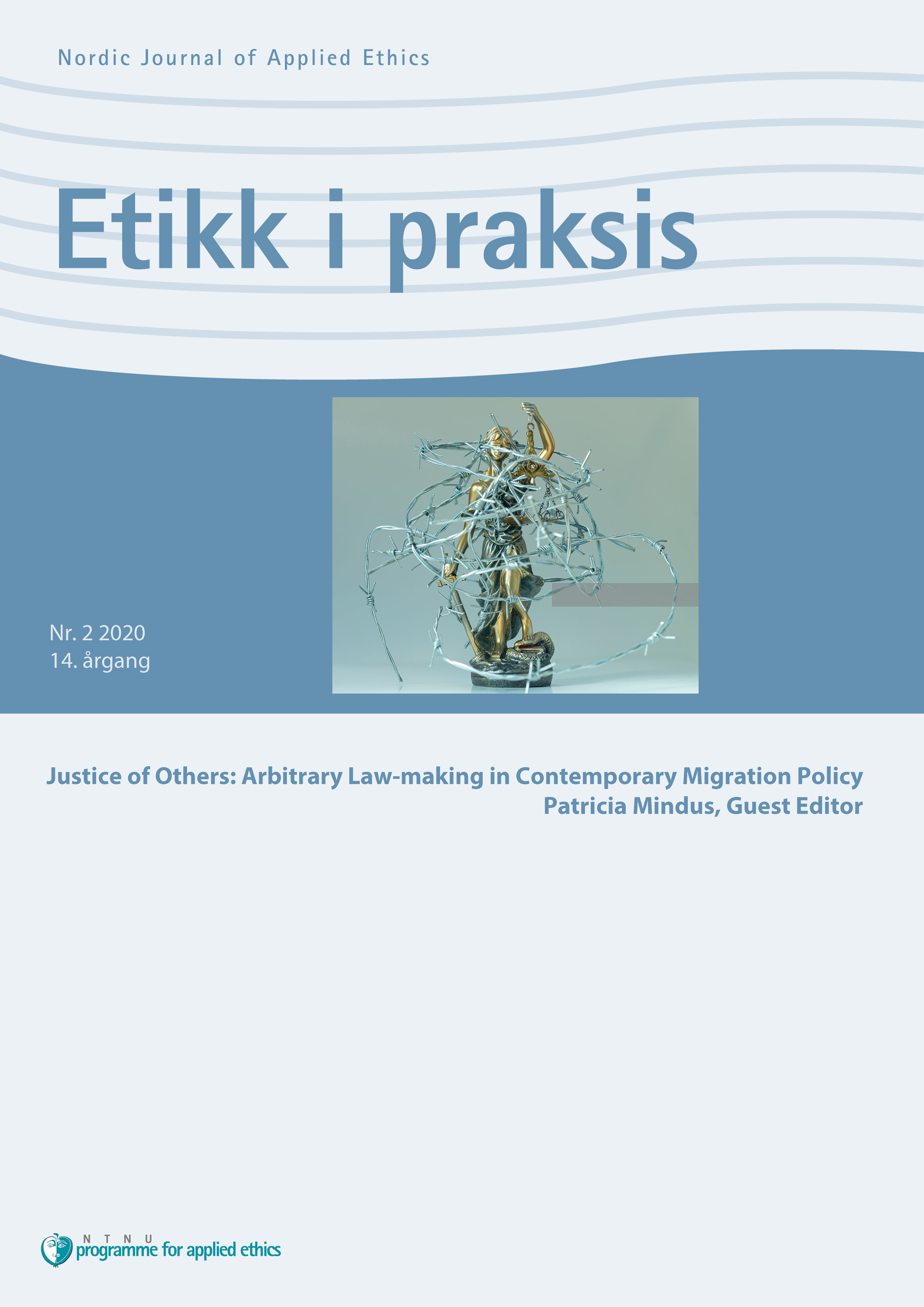Territorial Presence As A Ground For Claims: Some Reflections
DOI:
https://doi.org/10.5324/eip.v14i2.3490Resumé
"Territorial Presence As A Ground For Claims: Some Reflections" returns to political theory to assess the moral and legal position of those individuals who are inside the territory of liberal democratic states, but whose very presence has been unauthorised by the state. The author asks the question as to what their bodily presence means and does from a political perspective. The paper is part of a broader political phenomenology of territoriality in liberal national thought and puts emphasis on the idea that it is migrants’ bodily presence within the state’s territory that lies at the analytical heart of the conversation about irregular immigrants. What is paradoxical about territorial presence of unauthorised migrants is that such presence is simultaneously (1) the source of the offence states invoke as a justification for making them ‘illegal’; (2) the basis for protections the migrants may claim against the state for basic fair treatment while present; and (3) the ground for claims they make (or are made on their behalf) to remain present – i.e., to stay in the territory. Territorial presence is thus a fertile ground for the analysis of arbitrary law-making in migration. The author sets out to analyse some recent legal developments pertaining to the governance of irregular non-citizen immigrants in the United States. These developments bear on the project of theorising "immigrant justice" as resistance to the growing illiberalization of migration policy. In her view, the very existence of a class of people designated as irregular migrants within state polities presupposes that such polities maintain formal exclusionary border regimes and that in such regimes, some persons are predesignated as ineligible for entry. And even though those exclusion rules do not function to fully preclude entry and presence of such persons, states do not treat their arrival as an automatic basis for full membership either. Hence, irregular immigrants are territorially present in a state that purports to eschew that presence. The author then explores how the idea of “sanctuary” relates to the kinds of claims that both liberal humanitarians and immigrant justice advocates have been making over the last few years. These are claims which ground protection in what exponents cite as the overriding ethical significance of immigrants’ territorial presence – their already-hereness – as the basis for recognition and rights. In particular, the author makes the case that even though "sanctuary" provides a logic of safe harbour, it fails to end the predicament of constitutive based in border exclusionism. For her, the political, social, but also philosophical, struggle for the idea of border abolitionism requires a figurative sword that must go beyond sanctuary so that borders are not just mitigated, but radically deconstructed and even destroyed. The author takes this to be the vital imperative that confronts all legal and political theorists who must engage the normative challenge of rethinking arbitrary law-making in view of the new inequalities that a global political order grounded on sovereign borders produces.
Downloads
Downloads
Publiceret
Citation/Eksport
Nummer
Sektion
Licens
Copyright (c) 2020 Linda Bosniak

Dette værk er under følgende licens Creative Commons Navngivelse (by).


